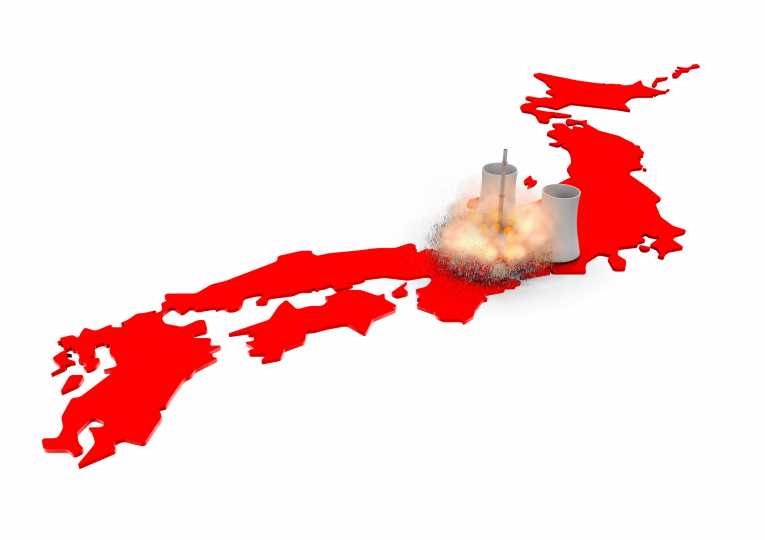The Japanese government has upgraded the alert level at the Fukushima nuclear plant damaged by the recent earthquake to five; the highest possible level is seven, the rating giving to the 1986 Chernobyl nuclear disaster in the former Soviet Union.
The United Nations has said that efforts to deal with the site are now in 'a race against time', and the crisis now has 'wider consequences', the meaning of the level five rating.
The new, higher alert level is because of core damage in reactors two and three at the site say Japanese officials. A level five alert means that there has been a 'limited release' of radioactive material.
Radiation levels are being monitored throughout the country but so far, outside the 30km exclusion zone around the plant, there has been little sign of raised radiation levels.
While the Japanese government has stuck rigidly to the view that the outside the 30km zone there is almost no danger, foreign governments have been more cautious and some have offered evacuation to their nationals in the country.
International Atomic Energy Agency chief Yukiya Amano has travelled to Tokyo and said that the crisis faced a 'race against the clock'.
"This is not something that just Japan should deal with, and people of the entire world should co-operate with Japan and the people in the disaster areas," said Mr Amano, a Japanese citizen.
The IAEA is due to hold a special board meeting on Monday to discuss the crisis.
Tokyo Electric Power, which runs the plant, is considering the option of encasing the plant in concrete to seal radiation leaks.










